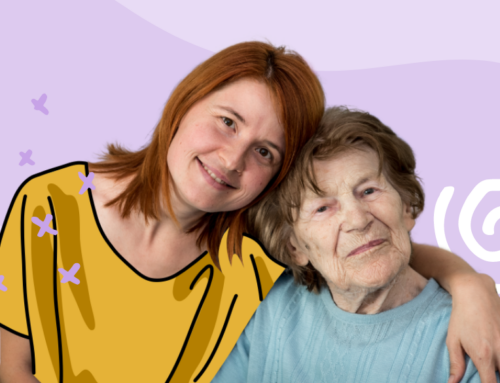Our guest blogger, Corey Ann Rotella, CNA, shares more words of wisdom. This time, she turns her focus to the loss and grief that are a part of every nurse aide’s work life.
Today, our guest blogger, Corey Ann Rotella, CNA, shares more words of wisdom. This time, she turns her focus to the loss and grief that are a part of every nurse aide’s work life. Corey says:
Loss. As CNA’s, it is inevitable that we will encounter it at some point in our careers. That aspect of the job has never been easy for me. This week, I lost one of my residents. I have taken care of her for six years and it really hit me hard.
Grief affects every CNA differently. Some folks I’ve worked with are able to simply chalk it up as part of the job; others seem to fall apart for a few days after a loss. I have learned to compartmentalize. I save my grieving for off the clock, but I DO feel the losses deeply and they do affect me in a variety of ways outside of work. Honing solid and healthy coping skills in our line of work is incredibly important.
“You just get TOO ATTACHED, Corey.” I’ve stopped counting how many times I have heard that from friends and co-workers. The fact is, I do get attached, but TOO attached? No. I don’t believe so. For me, the deep mutual trust that is involved in caring for my residents in their most vulnerable moments forms a bond between us. They open up to me about fears and grief and their lives “before” and, within reason, I share aspects of my life with them. In most instances, I think of them as dear friends and vice versa. This works for me and for them. Grieving their loss is a vital part of my healing process. Knowing that I was blessed to have these wonderful people in my life for even a short amount of time enriches me, reminds me of why I am in this field in the first place and inspires me to stick with it.
There is no right or wrong way to grieve. As long as it does not interfere with the care of our other residents or patients, I think it is healthy to work through it in whatever way is best for us individually. For me, talking about it with another CNA helps. Often, the families invite me to the funeral. Sometimes, that helps with closure. Journaling is another way that I keep my memories and work through my emotions.
All of these tools are healthy and helpful, but there is no “quick fix” and there are times that dealing with loss really does become quite draining. I don’t always notice it at first because it’s not as obvious as “feeling sad.†It’s more like a nagging malaise; a weariness that effects my mood, if not my work, a vague anxiety. I’ve learned to notice the signs. It is at those moments that self-care becomes a necessity. That’s when I go back to the basics. Am I getting enough rest? Am I eating healthy? Am I taking time with friends and family? Am I drinking enough fluids? This simple check list is usually enough to set me back on the right track. It’s funny how it’s the little things that we often forget.
Accepting and growing from grief is not easy, but it is possible. Loss has the unique ability to put our own lives in perspective and crystalize what is truly valuable within them. I’ve been researching how to start a local support group in my area for long term care workers. I believe that it’s worthwhile project and would be an outlet for healing and learning from one another.
You’ve read how Corey copes. Please feel free to share your own tips for coping with the loss and grief that you’ve experienced on the job. We’d love to hear from you!






